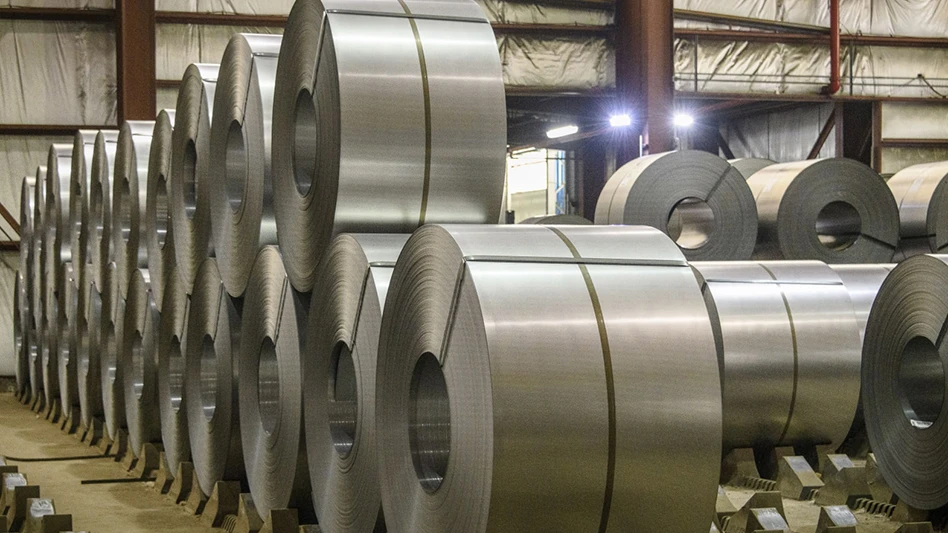PA. ISSUES RECYCLING DEVELOPMENT, IMPLEMENTATION GRANTS
Pennsylvania Department of Environmental Protection (DEP) Secretary Kathleen A. McGinty has announced 162 grants totaling $20 million to help finance municipal recycling programs that contribute significantly to the state’s continued economic growth and provide access to recycling services for some 10 million residents, according to the DEP.
McGinty made the announcement while awarding $435,000 in grant money to Middletown Borough to develop a composting facility on three acres that are part of a former federal Superfund and state Hazardous Sites Cleanup Act site on the grounds of the former Olmsted Air Force Base. The grant will finance site improvements, including fill, paving, seeding and erosion and sedimentation control. The funding also will be used to purchase a dump truck and a front-end loader with a grappler and other attachments, as well as a wood chipper.
The state grants reimburse local governments for the cost of municipal recycling and composting programs. Pennsylvania’s recycling program, created under Act 101 of 1988, mandates recycling in the state’s larger municipalities and requires counties to develop municipal waste management plans. Grants are financed by the Recycling Fund, which is supported by a $2-per-ton fee on all materials disposed of in landfills in Pennsylvania.
For a complete list of recipients by county, visit www.RecyclingToday.com.
MASS. DEP ANNOUNCES GRANT RECIPIENTS
The Massachusetts Department of Environmental Protection has announced that 114 cities, towns and regional recycling groups will receive a total of more than $583,000 in municipal recycling, education and equipment grants to promote waste reduction and recycling.
In addition, 11 municipalities that are hoping to implement Pay-As-You-Throw solid waste management programs this year have been awarded funding to help finance start-up costs associated with the programs.
More than 100 communities in Massachusetts already have Pay-As-You-Throw programs and, on average, have recycling rates that are 13 percent higher than those without it.
"The on-going recycling efforts of the cities and towns bring our state closer to reaching its waste reduction goal of 70 percent by the year 2010," DEP Commissioner Robert W. Golledge, Jr., says.
Massachusetts’s 70 percent waste reduction goal is to be met through a combination of source reduction, recycling and composting programs.
A complete list of grant recipients is available at www.RecyclingToday.com.
TENNESSEE AWARDS GRANTS
The Tennessee Department of Environment and Conservation has announced that 18 waste reduction grants totaling nearly $2,300,000 and 26 recycling equipment grants totaling approximately $519,000 have been awarded for projects across the state.
The grants are for the promotion of waste reduction through education, source reduction, recycling, reuse, composting and diversion from Class 1 landfills. Each recipient is required to match the state grant on a sliding scale. Additional local matching funds for these projects total almost $1.5 million.
The 26 recycling equipment grants will be used to purchase equipment for new recycling programs, to improve and expand the operation of an existing site or to prepare recyclable materials for transport and marketing. Each recipient is required to match the state grant on a sliding scale. Additional local matching funds going toward these projects total nearly $282,000.
Waste reduction and recycling grants are awarded to counties, cities, non-profit recycling organizations and solid waste authorities across Tenneessee to help the state reach or exceed the goals set forth in the Solid Waste Management Act of 1991.
The grants are authorized by the Solid Waste Management Act of 1991 and are supported by the Tennessee Solid Waste Management Fund that the Department of Environment and Conservation administers.
Tennessee’s Solid Waste Management Fund receives its revenues from a state surcharge on each ton of solid waste that is disposed in landfills and from a fee on new tires that are sold in the state.

Explore the April 2005 Issue
Check out more from this issue and find your next story to read.
Latest from Recycling Today
- Fitch Ratings sees reasons for steel optimism in 2025
- P+PB adds new board members
- BlueScope, BHP & Rio Tinto select site for electric smelting furnace pilot plant
- Magnomer joins Canada Plastics Pact
- Out of touch with reality
- Electra names new CFO
- WM of Pennsylvania awarded RNG vehicle funding
- Nucor receives West Virginia funding assist





